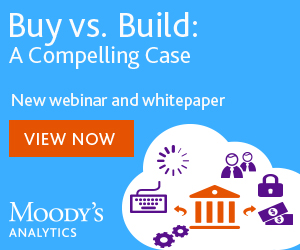|
This ABA Banking Journal newsletter is a free, twice-monthly supplement to the ABA Banking Journal magazine intended to help you stay on top of industry and policy news.
You can also stay abreast of banking news by visiting aba.com/BankingJournal, home to ABA Daily Newsbytes stories, digital exclusives, the ABA Banking Journal Podcast and more.
In this week's ABA Banking Journal podcast, ABA VP Rob Morgan and virtual currency expert John Collins join co-hosts Evan Sparks and Shaun Kern for a 20-minute conversation on what bankers need to know about bitcoin and blockchain. The conversation covers the growth and use of virtual currencies, financial crimes concerns related to virtual currencies, the underlying blockchain architecture, what makes it attractive to financial firms and some real-world blockchain deployments at banks. (ABA Banking Journal)
|
Temporary government funding runs out at midnight Friday and the House and Senate are seeking an agreement on a temporary extension. Democrats are demanding that spending legislation include a provision permanently shielding about 690,000 undocumented immigrants brought to the U.S. as children from deportation, while Republicans want to keep that issue separate from funding and budget negotiations. (Bloomberg)
|
Ever since the enactment of Dodd-Frank, bank managements have used stress test models for the purposes required by law: to identify and quantify risk in their loan portfolios, and to employ that data as the basis for capital allocation. But viewing stress test models so narrowly, merely as the means to fulfill a regulatory requirement, is a major missed opportunity. (ABA Banking Journal)
|
According to a New York Times/SurveyMonkey poll released this week, the number of Americans who favor the new law has increased compared to polls taken before the law passed. According to the poll, 46 percent of those surveyed approve of the new tax law, up from 37 percent in a poll taken in early December. Additionally, the number of people disapproving dropped to 49 percent from 58 percent previously. (Business Insider)
|
The U.S Department of Labor reported this week that first-time claims for unemployment benefits fell to a nearly 45-year low last week as the labor market shows further signs of tightening this year. Claims dropped to 220,000, a decrease of 41,000 from the previous week and the lowest level since Feb. 24, 1973. (The Hill)
|
As anticipated, 2017 was a year of elevated activity in the regulatory space. Now, as the regulatory roster fills up with Trump appointees, 2018 could finally be the year that the industry sees meaningful regulatory relief, particularly as the agencies work to implement the recommendations put forth by the Treasury Department’s report on financial regulation, which was issued in June. (ABA Banking Journal)
|
The Financial Accounting Standards Board responded to concerns ABA raised in a December 11 letter by issuing a draft proposal for adjusting regulatory capital balances that were unexpectedly affected by the new tax reform law. Concurrently, the federal banking agencies issued a joint statement that allows for the adoption of FASB’s proposal for regulatory reporting of Dec. 31, 2017, financial information. (ABA Banking Journal).
|
By portraying fairly modest changes to Dodd-Frank as if the law is being eviscerated, progressives run the risk of hurting their own credibility during the next fight over the law, writes American Banker Editor-in-Chief Rob Blackwell in a BankThink piece. (American Banker)
|
The House Financial Services Committee has passed a number of ABA-advocated bills including H.R. 1426, a bipartisan bill that would provide greater flexibility to banks chartered under the Home Owners’ Loan Act; H.R. 2226, which would provide a Qualified Mortgage safe harbor for loans held in portfolio; and H.R. 4725, which would reduce the regulatory reporting burden on community banks. Two other ABA-supported bills were also approved by the committee: H.R. 4771, which would update the small bank holding company policy statement asset threshold from $1 billion to $3 billion and H.R. 4607, a bill to improve the Economic Growth and Regulatory Paperwork Reduction Act regulatory review process. (ABA Banking Journal)
|
An op-ed by two North Dakota bankers welcomed S. 2155, the bipartisan regulatory reform bill in the Senate, and praised Sen. Heidi Heitkamp (D-N.D.) for her leadership role in moving it forward. "Despite the political noise and partisan bickering from Washington, something very unusual just happened in the U.S. Senate. North Dakotans should know about it," wrote ABA members Christine Obenauer and Gary Petersen. (The Forum)
|
This week, the House passed an American Bankers Association-backed bill that would ease reporting burdens associated with the expanded Home Mortgage Disclosure Act data collection. H.R. 2945 — introduced by Rep. Tom Emmer (R-Minn.) — passed on a bipartisan 243-184 vote. (ABA Banking Journal)
|
|







